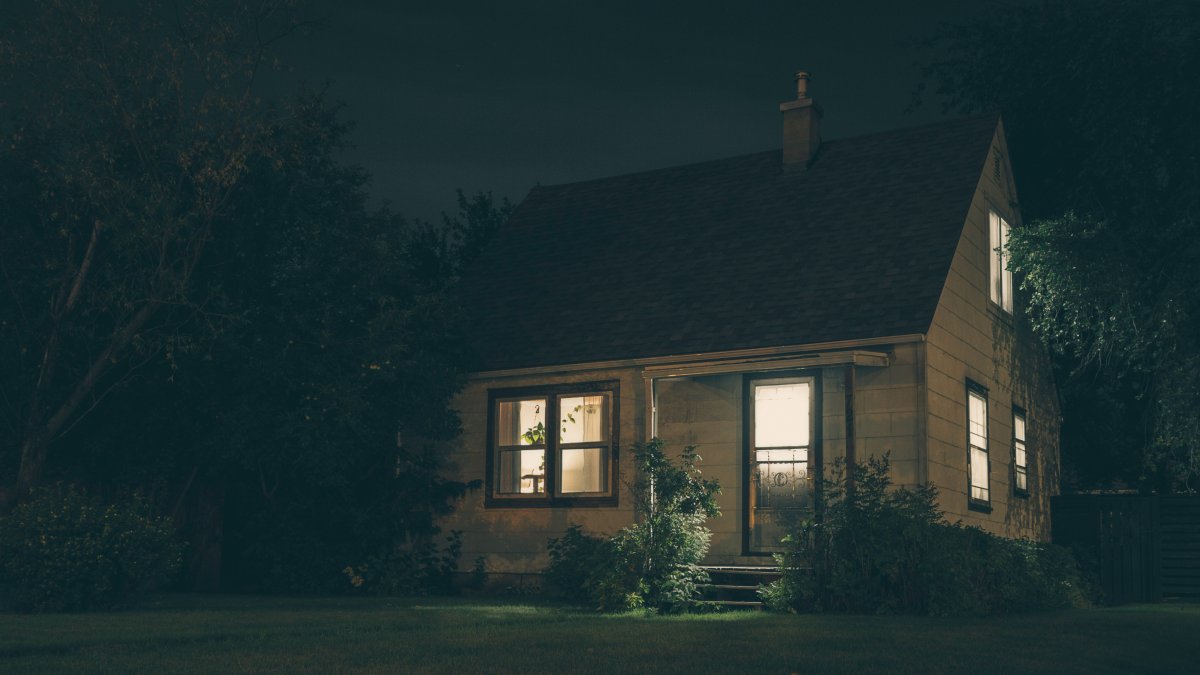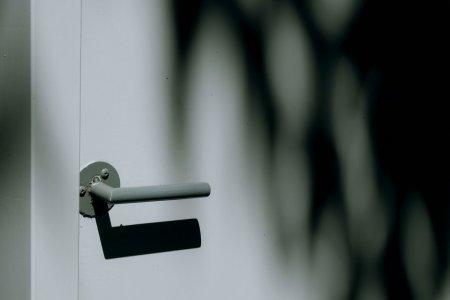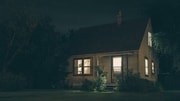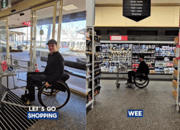
When you've spent decades building a life in your own home, the thought of someone breaking in during the night is more than just unsettling - it's a violation of everything that should be sacred. For many residents, especially seniors, this fear has become an unfortunate reality as home invasions continue to make headlines across the nation.
Now, one state MP is pushing for significant changes to self-defence laws that could give homeowners much clearer legal protection when confronting intruders. But what would these changes actually mean for everyday Australians, and how can you best protect yourself and your family under the current legal framework?
In this Article
The Growing Concern
The state of Victoria recorded 25,915 home burglaries in the latest available data, representing an increase of 2,653 from the previous year. More concerning still, aggravated residential burglaries - those involving weapons or occurring when residents are home - rose by 18.4% over a twelve-month period, from 5,093 to 6,031 incidents.
The human face behind these statistics tells a troubling story. Police have identified that youth offenders are responsible for approximately half of these aggravated burglaries, often targeting homes during daylight hours when they believe properties are unoccupied.
'At the moment, in Victoria, there's some exemptions for self-defence in your home, but we want them to look at strengthening that so that people who are defending their own home against violent criminals have more peace of mind that they won't get into trouble themselves.'
The confusion many homeowners face isn't without merit. Victoria's current self-defence laws, codified in Section 322K of the Crimes Act 1958, require two key elements to be met. First, you must believe that your conduct is necessary in self-defence, and second, your conduct must be a reasonable response in the circumstances as you perceive them.
Source: 9 News Australia/YouTube
This creates what legal experts call a 'two-limb test' - one subjective (what you honestly believed was necessary) and one objective (what a reasonable person would consider appropriate in the same circumstances).
The challenge lies in the interpretation. Unlike some other jurisdictions, Victoria doesn't provide special legal protections for actions taken in your own home. This means the same legal standards that apply to self-defence on the street also apply when someone breaks into your house at 2 AM.
Current Legal Rights in Victoria
Under Section 322K of the Crimes Act 1958, you can legally defend yourself if:
• You genuinely believe your actions are necessary for self-defence
• Your response is reasonable given the circumstances as you perceive them
• You're protecting yourself, another person, or preventing unlawful imprisonment
• Your actions are proportionate to the perceived threat
Important: The law doesn't require you to retreat in your own home, but it doesn't provide special protections either.
David Limbrick, the Libertarian Party MP pushing for reform, wants Victoria to adopt something similar to the UK's approach to home defence. Under the UK law, householders who use disproportionate (but not grossly disproportionate) force to defend themselves or others in their homes are not regarded as acting unlawfully.
'In the United Kingdom, they've got what they call 'castle doctrine', where effectively if someone comes into your home and you defend yourself against an intruder, then you're pretty much protected from harm as long as you don't do anything egregious,' the MP stated.
This doesn't mean a free-for-all - even under castle doctrine laws, you still can't use excessive force or set traps for intruders. But it would provide clearer legal protection for homeowners who act instinctively to protect themselves and their families.
The Reality Behind the Statistics
While the rise in aggravated burglaries is concerning, it's worth putting this in context. Contrary to popular belief, 58% of home invasions occur during the daytime, specifically between 10 AM and 3 PM, when most residents are at work or running errands.
Interestingly, youth offender rates have actually decreased from 1,847 to 1,764 offenders per 100,000 persons aged between 10 and 17 years. However, those who do offend are increasingly involved in more serious crimes, including aggravated burglary.
For seniors specifically, the statistics present a mixed picture. According to the Australian Housing and Urban Research Institute, 78 to 81 per cent of over-55s want to age in place, making home security an increasingly important consideration as we grow older.
Did you know?
Did You Know?
Most burglars enter through the front door (34%) or first-floor windows (23%), and many don't even need to break anything - 15% enter through doors or windows that were left unlocked. This highlights how basic security measures can be surprisingly effective.
Practical Steps You Can Take Today
While politicians debate legal reforms, there are immediate steps you can take to improve your home security and personal safety.
Start with the Basics
Deadlocks continue to be the most sought-after security method with more than 55% of Australians surveyed installing deadlocks in their homes. High-quality deadbolts on all exterior doors remain your first line of defence.
Lighting Makes a Difference
Motion-activated lights and dusk-to-dawn lighting are simple additions that both deter intruders and reduce fall risks for seniors navigating their property at night.
Technology That Actually Helps
Modern security technology has become much more senior-friendly in recent years. Video doorbells allow you to see and speak with visitors without opening the door, while smartphone apps can send alerts if doors or windows are opened unexpectedly.
Smart home systems aren't just for tech enthusiasts anymore. Many are designed with larger buttons, clearer displays, and simple voice commands that make them accessible for older adults who may not be comfortable with complex technology.

The proposed reforms aren't without controversy within legal circles. Some experts worry that loosening self-defence laws could lead to unnecessary violence or vigilante justice. Previous similar laws have been 'strongly opposed by then-Director of Public Prosecutions Paul Rofe, QC, and lawyer Marie Shaw, who is now a District Court Judge'.
However, supporters argue that the current system leaves too much uncertainty for homeowners who find themselves in frightening situations. The proposed reforms aim to shift this to a 'reasonable belief' standard, focusing on the individual's perception of the threat at the time. Advocates argue that the changes are not about encouraging vigilantism, but about removing the fear of prosecution for individuals acting legitimately in self-defence.
'The key to successful self-defence law reform lies in clear and concise legislation that provides guidance without creating loopholes. Education and training are also crucial to ensure that individuals understand their rights and responsibilities.'
Building Community Connections
One often-overlooked aspect of home security is community engagement. Neighbourhood Watch programs, while perhaps not as prominent as they once were, still provide valuable connections with neighbours who can keep an eye on your property.
Many local councils also run home security workshops specifically designed for seniors, covering everything from basic door and window security to understanding your legal rights if the worst should happen.
Don't forget that Home Insurance not only covers your house and personal possessions against loss or damage caused by natural disasters including storms and fires but also theft and attempted theft. Make sure your coverage is adequate and up-to-date, particularly if you're upgrading security systems or have valuable items.
Essential Steps for Better Home Security
- Install quality deadlocks on all exterior doors and windows
- Add motion-activated lighting around your property
- Consider a simple security system with monitoring
- Keep doors and windows locked even when you're home
- Get to know your neighbours and local community groups
- Review your insurance coverage annually
- Understand your current legal rights to self-defence
Looking Forward
Limbrick said he will this week move a motion in parliament calling on a formal review of existing self-defence laws by the Victorian Law Reform Commission. Whether this review proceeds, and what recommendations it might make, remains to be seen.
In the meantime, Attorney-General Sonya Kilkenny maintains that current laws are proportionate and continues to encourage Victorians to contact police in emergency situations.
Regardless of what happens with legal reforms, your best protection comes from:
1. Taking practical security measures now
2. Understanding your current legal rights
3. Having emergency plans in place
4. Staying connected with your community
5. Keeping informed about any legal changes
Remember: The goal isn't to live in fear, but to live with confidence and appropriate preparation.
Emergency Contacts and Resources
In an Emergency:
Call 000 immediately
Victoria Police Non-Emergency:
131 444
Seniors Rights Victoria:
1300 368 821
Home Security Advice:
Contact your local council about senior safety workshops
Legal Advice:
Victoria Legal Aid 1300 792 387
What This Means For You
The debate over self-defence laws highlights a fundamental tension in our society - balancing the right to feel safe in your own home with ensuring our legal system remains fair and proportionate. While politicians and legal experts work through these complex issues, the most important thing you can do is take practical steps to protect yourself and stay informed about your rights.
Your home should be your sanctuary, not a source of anxiety. With the right preparation, knowledge, and community connections, you can maintain both your independence and your peace of mind, regardless of what changes may or may not come to Victoria's self-defence laws.
What security measures have you found most effective in your home? Have you had any experiences with home security that other readers might learn from? Share your thoughts and experiences in the comments below.
Call for stronger self-defence laws in Victoria amid rise in home invasions
Home Break In Stats For 2024 | Vic-Locks
https://viclocks.com.au/home-break-in-stats-for-2024/
Self-defence (Australia) - Wikipedia
https://en.wikipedia.org/wiki/Self-defence_(Australia)
The Englishman's Castle: the use of lethal force in defence ...
https://law-school.open.ac.uk/sites...les/JCLLE/special-2019/englishmans-castle.pdf
The Defence of Self-Defence (Vic) - Go To Court
https://www.gotocourt.com.au/criminal-law/vic/defence-of-self-defence/
25+ Startling Home Invasion Statistics: A Deep Dive (2025)
https://getsafeandsound.com/blog/home-invasion-statistics/
Reducing serious youth crime | Queensland Audit Office
https://www.qao.qld.gov.au/reports-resources/reports-parliament/reducing-serious-youth-crime
Home Burglary Survey and Statistics 2024 - Budget Direct
https://www.budgetdirect.com.au/home-contents-insurance/research/home-burglary-statistics.html
The Defence of Self-Defence (NSW) - Go To Court
https://www.gotocourt.com.au/criminal-law/nsw/self-defence/
Home Burglary Survey and Statistics 2024 - Budget Direct
https://www.budgetdirect.com.au/home-contents-insurance/research/home-burglary-statistics.html
Vic Self-Defence Laws: Fight Back, No Charges?








